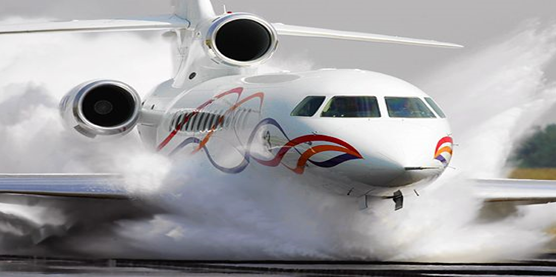Temporary admission of aircraft in Switzerland
The Istanbul Conventions on Temporary Admission allows foreign aircraft to be used in Switzerland. As a matter of fact, the Swiss VAT and customs treatment does not distinguish among means of transport such as aircraft, cars or even trains; however, the Istanbul Convention does not allow the transport for reward of goods and passengers within Switzerland, thus there must be a cross-border transport.
Basically, the non-imported aircraft is a foreign good and, therefore, the non-Swiss resident person using the aircraft is entitled to the benefits of the Istanbul Convention and the reliefs outlined in the Swiss Customs laws regarding the temporary admission of such mean of transport in Switzerland.
The Swiss Customs Authorities are competent to grant or deny the temporary admission, and they are responsible to levy all import levies, including Swiss Value Added Tax on the import of foreign goods.

Requirements
Temporary Admission is granted to the person entitled to use the means of transport, provided, however, that all the following conditions are met:
- the aircraft is registered in a foreign aircraft registry; and
- the aircraft maintains a foreign base and, therefore, is in Switzerland only temporarily; and
- no Swiss domestic business flights are allowed under this regime, unless the aircraft is strictly operated privately when in Switzerland and used by non-residents; and
- the aircraft remains under the supervision of the Swiss Customs Authorities during its sojourn in Switzerland, for example, it is not put in a hanger without prior permission; and
- the person or entity that
- has the right to use the aircraft, and
- the person that has factual control over the aircraft,
is not resident in Switzerland; thus, temporary admission is still possible in the event the aircraft is owned by a Swiss resident entity or person, provided, however, the right to use is with a non-resident person or entity.
Factual control is not a legal term but has to be understood as the competencies to decide when and if the aircraft is to be engaged and who may use it. These powers include to instruct the pilot in command and the operator to fly from point A to B.
To determine the person or entity making these decisions, the Swiss Customs Authorities apply a substance over form approach, thus, not the legal entities and their contractual agreements are controlling. Such determination is a rather controversial facts-and-circumstances approach that allows the competent authorities extensive discretion when assessing the fact pattern.
Procedure and Liabilities
If the conditions outlined herein above are met, the person or entity entitled to the temporary admission does not have to formally apply for its benefits but may remain in Switzerland for a specified period without providing a guarantee or a bond for levies potentially incurred with the sojourn of the aircraft and its import in Switzerland. Within such limits no import VAT or customs levies are payable.
However, when deviating from these conditions, a customs declaration has to be filed to the Swiss Customs Authorities, thus, the operator, pilot or the passenger have to seek the permission prior to arriving in Switzerland; in particular, the use of the aircraft by a Swiss resident or the usage of the aircraft for sale or marketing in Switzerland, has to be notified in time to these authorities who will grant permission only if specific requirements are met; in practise, however, such permissions are quite rare.
If the requirements outlined herein above are not complied with, the parties involved in the flight to Switzerland, including but not limited the operator, the pilots and the owner, will be potentially jointly liable for all taxes and duties incurred with the deemed import of the aircraft.
Legal Disclaimer:
This publication was prepared with the greatest possible care. However, it is for information purposes only and cannot replace individual advice. Any liability for the correctness or topicality of the information is excluded.
© April 2020
Ansprechpartner

